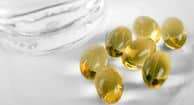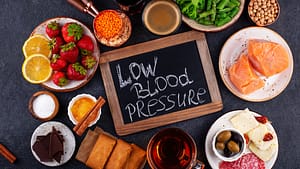
Natural Remedies for Cholesterol – Healthline
Natural remedies for heart disease help control cholesterol and lower blood pressure, but the evidence is scarce. While some people have been successful, using conventional treatments may still be better.
Few natural products have been researched enough to prove they can reduce cholesterol clinically.
However, many people have experienced some success with alternative treatments, and some cholesterol-lowering supplements and natural remedies might be helpful.
Before you try any alternative treatments, check with a healthcare professional to determine if they’re safe for you. The ingredients in some alternative therapies can interfere with certain medications or have harmful side effects.
Astragalus is an herb used to support the immune system in traditional Chinese medicine. It has antibacterial and anti-inflammatory properties. It’s considered to be an “adaptogen.” This means it’s believed to protect the body against various stresses.
Limited studies suggest that astragalus may have some benefits for your heart. But according to the National Center for Complementary and Integrative Health (NCCIH), high quality clinical human trials are
Hawthorn is a shrub related to the rose. Its berries, leaves, and flowers have been used for heart problems since the Roman Empire.
Some studies have found the plant to be an effective treatment for milder forms of heart failure. However,
Also, hawthorn can have negative interactions with many prescription medications and other herbs.
Flax seed comes from the flax plant. Both flax seed and flaxseed oil contain high levels of alpha-linolenic acid (ALA). This is an omega-3 fatty acid that may help lower your risk of heart disease.
Research on the benefits of flaxseed for heart health has produced
Omega-3 fatty acids are also found in fish and fish oils. Salmon, tuna, lake trout, herring, sardines, and other fatty fish are especially rich sources.
Experts have long believed that omega-3 fatty acids in fish help reduce the risk of getting heart disease. Other nutrients in fish, or a combination of those nutrients and omega-3 fatty acids, may help protect your heart. Eating one or two servings of fatty fish a week may lower your chances of having a heart attack.
If you have heart disease, you may also benefit from taking omega-3 fatty acid supplements or eating other foods rich in omega-3 fatty acids. For example, walnuts, canola oil, and soybeans are good sources. Evidence is stronger for the benefits of eating fish with omega-3 fatty acids than taking supplements or eating other foods.
Red yeast rice is a traditional Chinese medicine and cooking ingredient. It’s made by culturing red rice with yeast.
Some red yeast rice products contain substantial quantities of monacolin K. This substance is chemically identical to the active ingredient in the cholesterol-lowering drug lovastatin. Red yeast rice products that contain this substance
Other red yeast rice products contain little to no monacolin K. Some also contain a contaminant called citrinin. This contaminant can cause kidney failure.
In many cases, there’s no way for you to know which products contain monacolin K or citrinin. Therefore, it’s hard to tell which products will be effective or safe.
Plant sterols and stanols are substances found in many fruits, vegetables, nuts, seeds, grains, and other plants. Some processed foods are also fortified with plant sterols or stanols, such as fortified margarine, orange juice, or yogurt products.
Plant sterols and stanols may help lower your risk of heart disease. They help prevent your small intestine from absorbing cholesterol. This can lower LDL (bad) cholesterol levels in your blood.
Garlic is an edible bulb that’s been used as a cooking ingredient and medicine for thousands of years. It can be eaten raw or cooked. It’s also available in supplement form, as a capsule or tablet.
Some research suggests that garlic may help lower your blood pressure, reduce your blood cholesterol levels, and slow the progress of atherosclerosis, reports NCCIH.
However, as with many alternative therapies, studies have yielded
However, an NCCIH-funded study on the safety and effectiveness of three garlic preparations found no long-term effect on blood cholesterol.
You can also adopt healthy lifestyle habits to help manage your blood cholesterol levels. For example:
A variety of medications are also available to lower high cholesterol. For example, your doctor may prescribe:
Cholesterol is a type of fat in your blood. Although your body makes all the cholesterol it needs, you also get cholesterol from the foods you eat. Your genetics, age, diet, activity levels, and other factors affect your risk of developing high cholesterol.
High cholesterol is one of the major risk factors for heart disease. It increases your chance of developing heart disease and having a heart attack. It can also raise your risk of stroke. In particular, high levels of low-density lipoprotein (LDL) cholesterol raise your risk of these conditions. LDL cholesterol is often called “bad” cholesterol.
If you have high cholesterol, your doctor may prescribe medications or lifestyle changes. For example, maintaining a healthy weight for your body size, increasing your physical activity, eating nutrient-rich foods, and quitting smoking can help bring your cholesterol levels down.
Read this article in Spanish.
Last medically reviewed on March 8, 2023
Our experts continually monitor the health and wellness space, and we update our articles when new information becomes available.
Current Version
Mar 8, 2023
Medically Reviewed By
Debra Rose Wilson, PhD, MSN, RN, IBCLC, AHN-BC, CHT
Jan 29, 2021
Written By
The Healthline Editorial Team
Edited By
Lauren Bullen
Copy Edited By
Douglas Backstrom
Share this article
OUR BRANDS

